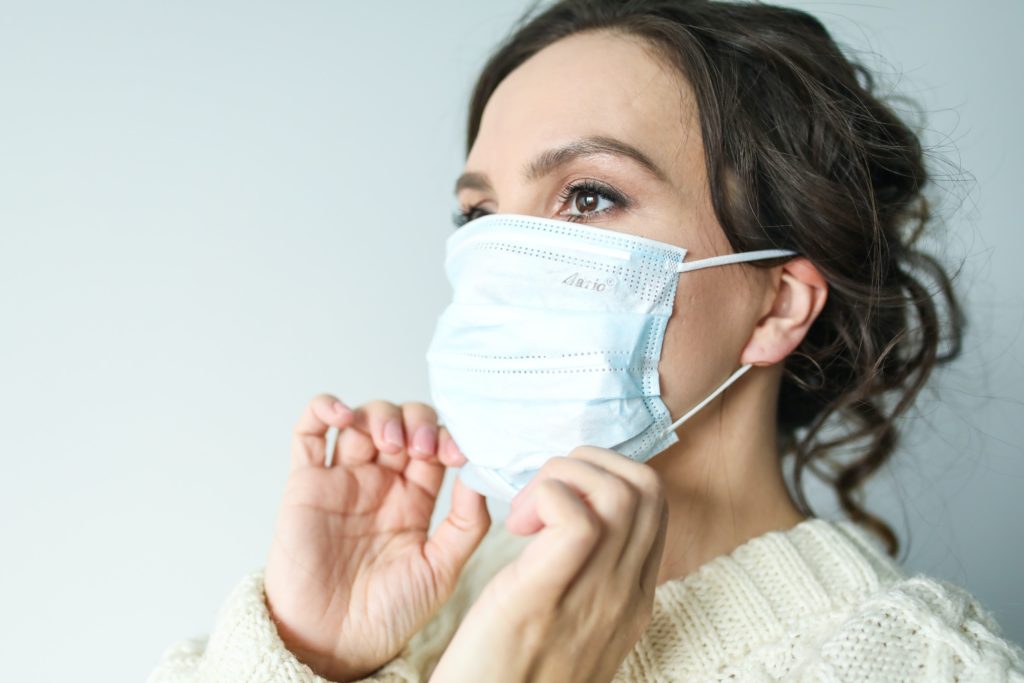When did mask anxiety start? Once lockdown is beginning to be lifted, the Government decided that face masks must be worn in shops from Friday 24th July by law. People who do not obey the new rules will face up to a £100 fine.
Of course, we all want to help stop the spread of coronavirus that goes without saying. No-one imagines that coming out of lockdown is going to be easy and that we will have to get used to the new normal which will bring big changes in the way we live. We will have to continue to follow social distancing guidelines and wear masks in certain public spaces.
Why do we need to wear masks?
Wearing a face mask or face covering can protect both ourselves, and those around us. Many cases of COVID-19 can be very mild or asymptomatic and so many people can be infected without even realising it. So, if we all wear a mask in public areas and where it’s difficult to maintain social distance, we help protect everyone.
Why Masks can make people uncomfortable
So far so straightforward. But wearing a mask isn’t easy for everyone. Some people are finding that wearing a mask or face covering is difficult or even impossible to do. For people with mental health problems, having to wear a mask presents even more of a challenge. This mask anxiety can present itself in a variety of different ways triggering existing mental health problems.
Mask Anxiety – Feelings of claustrophobia
Many people have reported that wearing a mask has caused claustrophobia and symptoms of anxiety. People already suffering from anxiety have found that the wearing of a mask triggers a recurrence of their problems and can even lead to panic attacks.
The charity Mind has produced a self-help article which explains why masks can cause difficult feelings, and gives practical tips on how to cope with mask anxiety. Includes information on exemptions for mental health reasons. Read the full article.
What is Anxiety?
anxiety (æŋˈzaɪɪtɪ) n. a state of uneasiness or tension caused by apprehension of possible future misfortune, danger, etc; worry
Collins English Dictionary
Anxiety is inbuilt into the fabric of who you are, regardless of what’s going on in your life. Unlike stress, the root causes of anxiety may be – and frustratingly remain – unknown but you have a constant and often debilitating feeling of impending doom accompanied by fear and apprehension. It can manifest itself in physical symptoms such as stomach aches, shaking, sweaty palms and panic attacks.
On one hand, anxiety can protect you from impending danger by releasing adrenalin which makes your heart beat faster; to carry the blood around your body your breathing quickens to produce the extra oxygen you need for energy; you sweat which prevents your body from overheating; more blood is sent to your muscles; your brain is more alert and your senses are heightened.
This is known as the ‘fight or flight reflex’. These physiological symptoms allow you to quickly react and either run away from danger (flight) or stay and take your chances (fight).
While this is useful against imminent physical dangers, it’s not particularly useful if you want to run away from making a presentation at work, taking exams, a driving test or going across a bridge. If there’s not a clearly defined physical threat, the ‘fight or flight’ reflex doesn’t manifest itself and your feelings of agitation continue for longer.
Anxiety comes in the form of phobias, a fear of social situations, Obsessive Compulsive Disorder (OCD) and panic attacks and like stress, you have different anxiety thresholds. What makes you highly anxious will be of little concern to someone else.
That’s where Behavioural Freedom comes in. Please go to my Anxiety page to find out more about the symptoms of anxiety and how I can free you from the unwanted behaviours that stop you from doing the things you really want to do.
Please contact me today to start the journey back to behavioural freedom.

